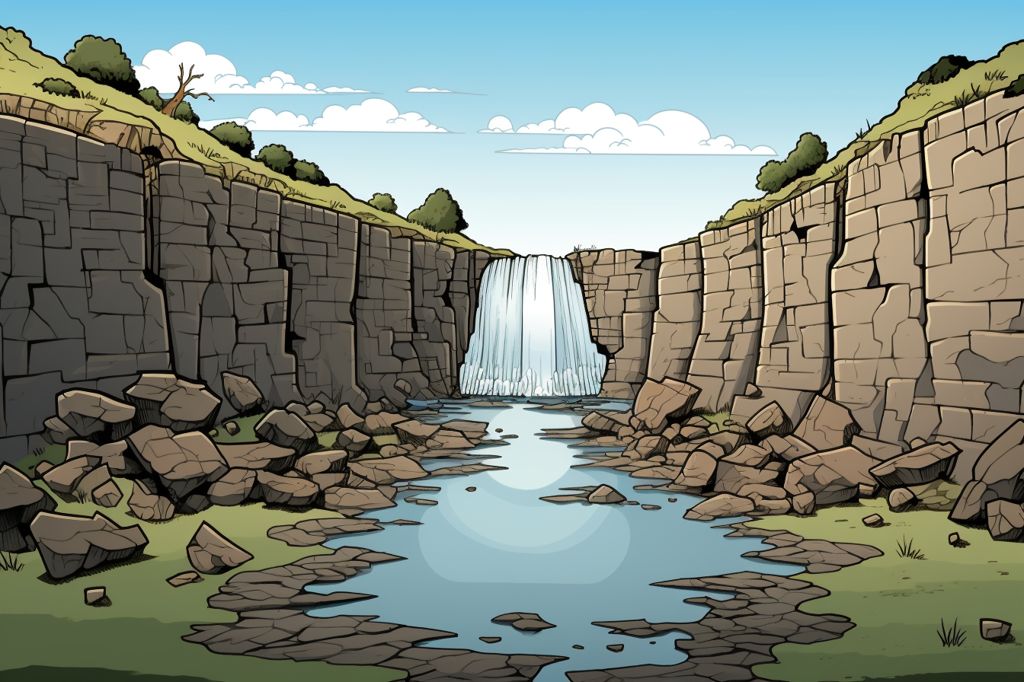KwaZulu-Natal (KZN) has faced water supply difficulties, hindering economic development in the South African province. The area’s per capita water consumption is much higher than the national and global averages, causing concern. The rejuvenation of KZN’s water and sanitation infrastructure is a considerable endeavor by the South African government, aiming to improve the lives of millions of citizens. By tackling these challenges, the area is well-positioned to achieve enhanced water security, superior sanitation facilities, and sustainable economic growth.
Addressing Water and Sanitation Concerns in KwaZulu-Natal
South African Minister of Water and Sanitation, Senzo Mchunu, recently held a media briefing to discuss water and sanitation issues in the KwaZulu-Natal (KZN) province and eThekwini Metro. As a significant tourist destination in the country, KZN has faced water supply difficulties, hindering its economic development. In this piece, we explore these problems, the suggested solutions, and the potential influence on the province’s future.
KZN is home to 11.5 million people and experiences an average annual rainfall of 823 mm, making it an essential water source for South Africa. eThekwini Metro, with a population of over 3.9 million, depends heavily on the uMngeni Water System and its water supply schemes to meet the needs of its growing population. However, the area’s per capita water consumption is much higher than the national and global averages, causing concern.
A significant challenge impacting KZN’s water supply is its aging infrastructure, contributing to a non-revenue water loss of 58.2% in eThekwini, resulting in an annual revenue loss of around R2 billion. Several initiatives and projects have been suggested or are in progress to address this issue.
Key Initiatives and Projects for Water Security
The R23 billion uMkhomazi Water Project is a substantial step towards enhancing water security in eThekwini and nearby districts. This project was delayed for years, but recent updates have confirmed its revival. The Trans Caledon Tunnel Authority (TCTA) and uMngeni-uThukela Water are in charge of implementing the project, which aims to secure water by 2030.
Apart from the uMkhomazi Water Project, other initiatives seek to improve water and sanitation services throughout KZN. The Department of Water and Sanitation (DWS) finished raising the Hazelmere Dam wall by 7.02 meters, providing eThekwini with extra water resources. The city has also concentrated on fixing damaged aqueducts to ensure a more reliable water supply.
New projects, such as the Vulindlela Water Scheme and the construction of additional water treatment works, are in progress to further strengthen KZN’s water supply. These initiatives are expected to serve hundreds of thousands of people, guaranteeing better access to clean water across the province.
The South African Human Rights Commission released a report emphasizing the necessity for better water access in the area. The Department of Water and Sanitation is implementing the Commission’s recommendations and is dedicated to taking regulatory actions when required.
Upgrading Wastewater Infrastructure and Establishing a Water Board
Efforts to address wastewater infrastructure problems in eThekwini are also underway. The city and Umngeni-Uthukela Water have agreed to refurbish, operate, and maintain ten wastewater plants, which account for 90% of the effluent treated by the city.
The formation of the Umngeni-Uthukela Water Board is an essential development for KZN’s water and sanitation sector. With members experienced in science, engineering, law, accounting, and finance, this newly established board plays a crucial role in supervising the region’s water projects and initiatives.
The rejuvenation of KZN’s water and sanitation infrastructure is a considerable endeavor by the South African government, aiming to improve the lives of millions of citizens. By tackling these challenges, the area is well-positioned to achieve enhanced water security, superior sanitation facilities, and sustainable economic growth.
In summary, the revitalization of KZN’s water and sanitation infrastructure is vital for the region’s ongoing growth and development. With current initiatives and projects like the uMkhomazi Water Project, KZN has the potential to overcome its present difficulties and secure a brighter future for its residents.
1. What is the water supply issue in KwaZulu-Natal?
KwaZulu-Natal has faced water supply difficulties, hindering economic development in the South African province.
2. Why is per capita water consumption a concern in KwaZulu-Natal?
The area’s per capita water consumption is much higher than the national and global averages, causing concern.
3. What is the uMkhomazi Water Project?
The R23 billion uMkhomazi Water Project is a substantial step towards enhancing water security in eThekwini and nearby districts, with the aim to secure water by 2030.
4. What other initiatives are in progress to improve water and sanitation services in KwaZulu-Natal?
New projects, such as the Vulindlela Water Scheme and the construction of additional water treatment works, are in progress to further strengthen KZN’s water supply.
5. What is the Umngeni-Uthukela Water Board?
The Umngeni-Uthukela Water Board is a newly established board with members experienced in science, engineering, law, accounting, and finance, playing a crucial role in supervising the region’s water projects and initiatives.
6. What is the non-revenue water loss in eThekwini?
The non-revenue water loss in eThekwini is 58.2%, resulting in an annual revenue loss of around R2 billion.
7. What is being done to address wastewater infrastructure problems in eThekwini?
Efforts to address wastewater infrastructure problems in eThekwini are underway, with the city and Umngeni-Uthukela Water agreeing to refurbish, operate, and maintain ten wastewater plants.
8. What is the goal of the rejuvenation of KwaZulu-Natal’s water and sanitation infrastructure?
The rejuvenation of KwaZulu-Natal’s water and sanitation infrastructure is a considerable endeavor by the South African government, aiming to improve the lives of millions of citizens and achieve enhanced water security, superior sanitation facilities, and sustainable economic growth.








